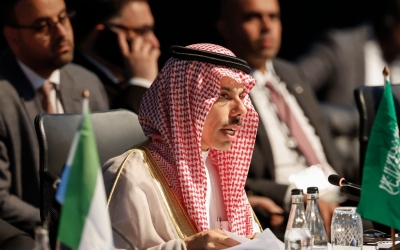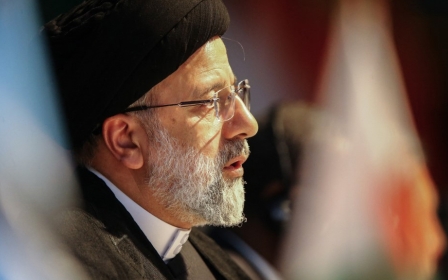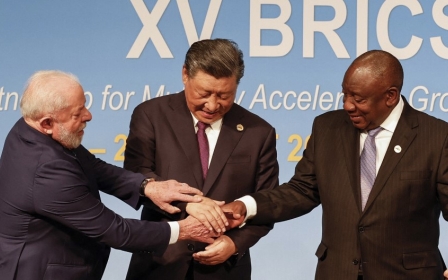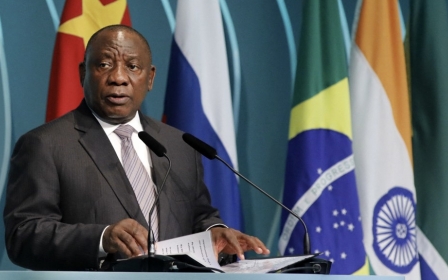Why Turkey wants to join Brics
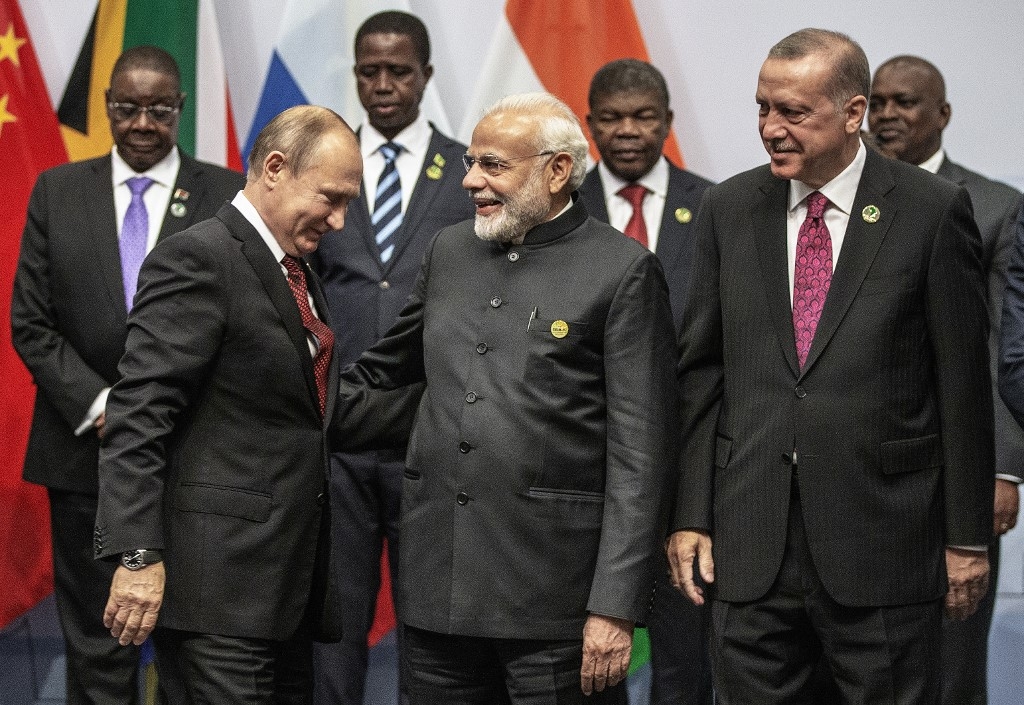
Turkey has made a strategic move to join the Brics economic bloc earlier this year, three Turkish officials with knowledge of the matter told Middle East Eye.
Brics, an acronym for its early members - Brazil, Russia, India, China, and South Africa - is seen likely by some commentators to dominate the global economy in the coming decades.
Often seen as an alternative to the G7, which is led primarily by western nations, Brics represents a significant shift in global power dynamics. If Turkey's bid is successful, it would become the first Nato ally to join the bloc.
The Kremlin mentioned that Turkey's interest will be a topic of discussion at the Brics summit, chaired by Russia, on Monday and Tuesday in Nizhny Novgorod. However, it cautioned that the organisation is unlikely to accept every membership application.
New MEE newsletter: Jerusalem Dispatch
Sign up to get the latest insights and analysis on Israel-Palestine, alongside Turkey Unpacked and other MEE newsletters
Turkish Foreign Minister Hakan Fidan confirmed his attendance at the summit last week.
Last August, Brics announced plans to double its membership, extending invitations to, among others, Saudi Arabia, Egypt, Iran and the United Arab Emirates. Turkish President Recep Tayyip Erdogan has previously expressed interest in joining Brics, but formal discussions had not taken place until now.
Following the decision by Brics to expand, the Turkish foreign ministry began assessing the potential benefits and costs of membership, according to a Turkish official who spoke to MEE.
'We don't see Brics as an alternative to Nato or the EU. However, the stalled accession process to the European Union encourages us to explore other economic platforms'
- Turkish official
Turkey's interest in an economic platform led by China and Russia has raised eyebrows in European capitals. A second Turkish official told MEE that Turkey is attracted to Brics because it does not require political or economic commitments or agreements.
"We don't see Brics as an alternative to Nato or the EU," the official said. "However, the stalled accession process to the European Union encourages us to explore other economic platforms."
The official added that Turkey's "on-paper allies" often overlook Ankara's security concerns and deny it advanced weaponry. "We would like to be part of every multilateral platform, even if there is only a slight chance of benefit to us," the official explained.
Among others, Hayati Unlu, an academic at Turkey's National Defense University, argues that Turkey's interest in Brics should not be seen as a full pivot away from the west. "Turkey wants to develop a network of relationships complementary to its ties with the west to overcome economic difficulties," he said.
Unlu noted that traditional global institutions, such as the United Nations and the World Trade Organization, are increasingly seen as outdated, leading to the rise of alternative platforms such as the Quad (a security dialogue involving Australia, India, Japan and the US) or the expanding Brics, known as Brics Plus.
Leon Rozmarin, an expert on Russian affairs at Northeastern University in the US, said: "It is better to eat at both weddings, so to speak. By building cooperation with both the West and key states and structures of the rest, Turkey aims to occupy a unique role that not every country can achieve."
Rozmarin told MEE that Turkey's pursuit of Brics aligns with its policy of maintaining trade ties with Russia, even after the 2022 invasion of Ukraine. "If Turkey does join, it is not necessarily an anti-western move because India and Brazil have been in this organisation from the very start," he said.
However, the first Turkish official expressed doubts about the viability of Brics membership, given the bloc's recent focus on de-dollarisation and Ankara's agreements with countries in the region to establish settlement mechanisms in local currencies.
"We don't have significant trade with Brics countries, except for China," the official said, noting that Turkey still conducts more than half of its annual trade with the European Union.
The official also questioned Brics's political influence, suggesting that the bloc's impact remains limited. "Brics could be more meaningful in the future if it becomes politically more important and gains resonance with international public opinion," the official commented.
Unlu believes that the very participation of middle powers like Turkey could enhance Brics's significance, as these nations seek a multipolar world order not dominated by superpowers.
Middle East Eye delivers independent and unrivalled coverage and analysis of the Middle East, North Africa and beyond. To learn more about republishing this content and the associated fees, please fill out this form. More about MEE can be found here.


